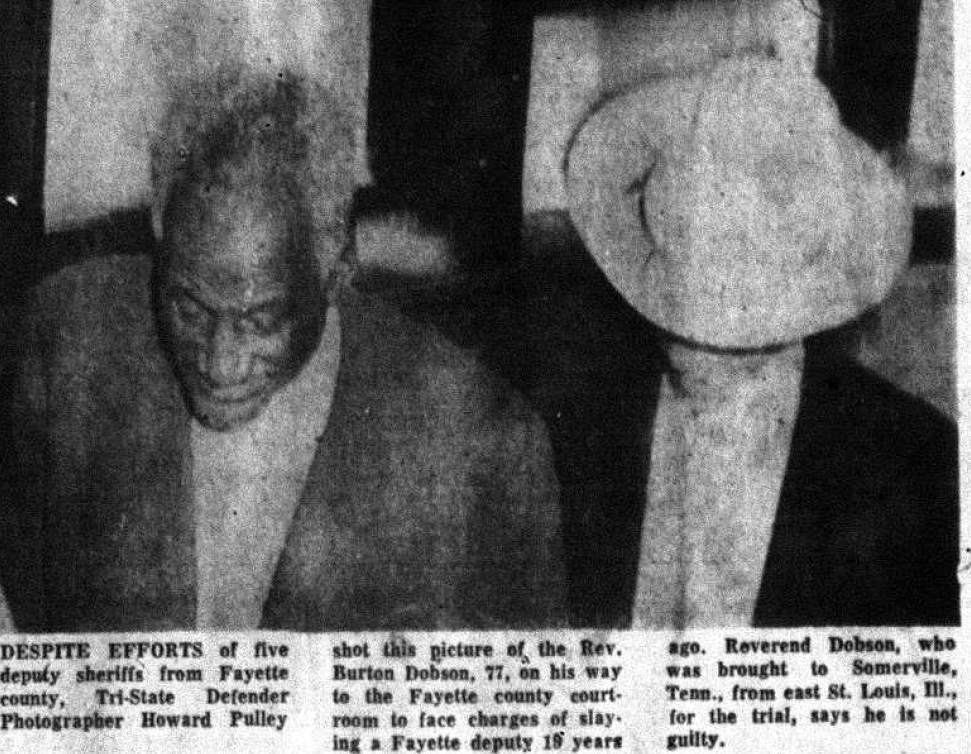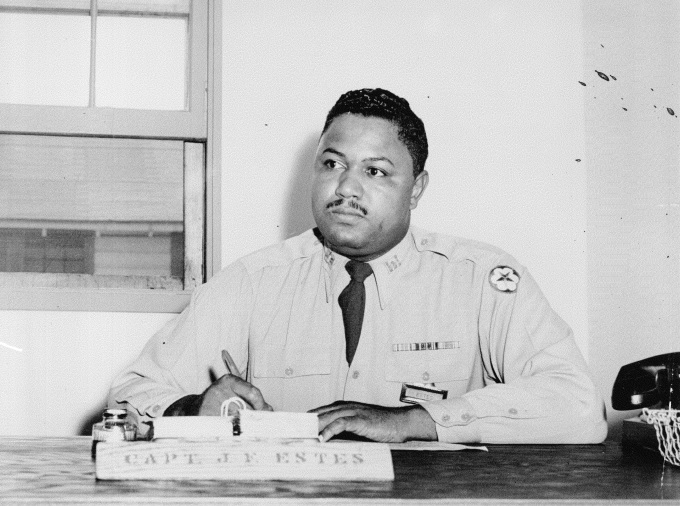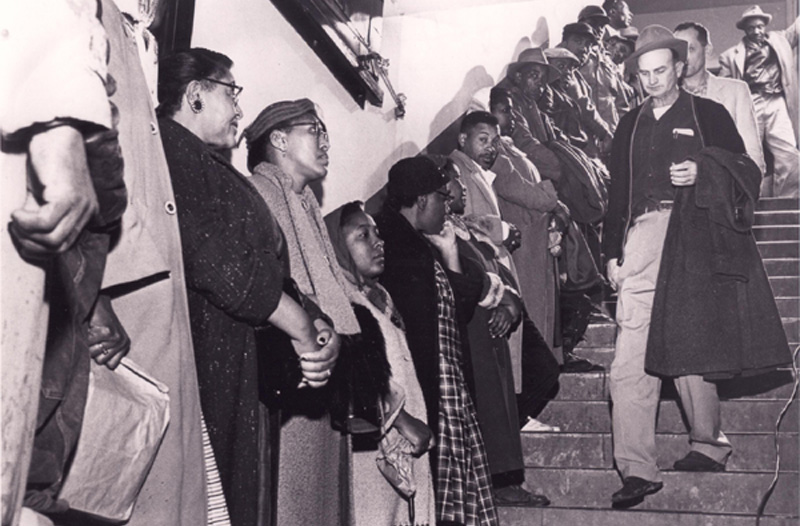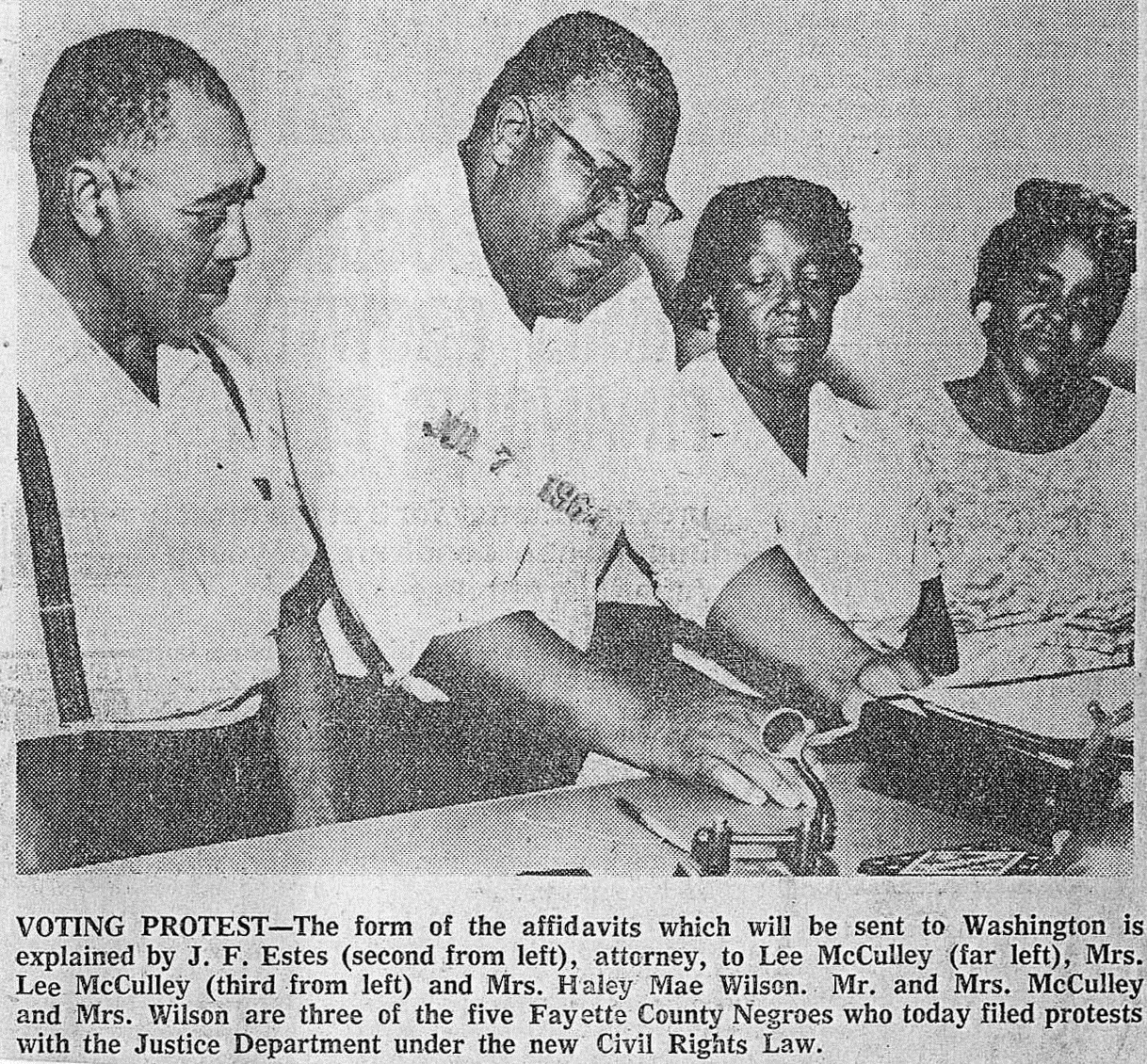Fayette Timeline 1959
April 9, 1959

Source: Tri-State Defender: April 6, 1959
In September of 1958, authorities find Burton Dodson living in St. Louis. At 78 years old, he is extradited to Fayette County to stand trial for first-degree murder. Prominent African-American attorney James F. Estes represents Dodson. He is convicted of second-degree murder in April of 1959. Much of the black community asserts that it is forensically impossible for Dodson to have committed the murder. The trial sparks interest with the black citizens to register to vote and serve on juries.
Dodson is indicted in November of 1958.The indictment claims that in March of 1940, Dodson "willfully, deliberately, premeditatedly, feloniously, and of his [illegible] aforethought did shoot, kill, and in the first degree murder one O. B. Burrows."
Allen Yancey Describes the Effects of the Dodson Trial on Registration Efforts
Source: 2002 Documentary Project, Fayette County, TN. Special Collections, University of Memphis Libraries
May,1959

Source: Photograph, Special Collections, University of Memphis Libraries.
Attorney James F. Estes, with ties to the Memphis NAACP, spurs action for civil rights in both Haywood and Fayette Counties by assisting and/or recruiting local leaders to organize and register blacks to vote. Estes works with Haywood County civil rights activist Currie Boyd to establish a "Civic League" in Haywood. When McFerren and Jameson attend the trial of Burton Dodson, Estes seizes the opportunity to encourage them to organize blacks to register to vote in Fayette County.
Understanding both the political and legal process as well as the power of the media, Estes, in December 1959, obtains affidavits from blacks in Fayette and Haywood Counties where they make sworn statements that they have been denied their constitutional right to vote by local whites.
June, 1959

Source: Photograph, Special Collection, University of Memphis Libraries
In February, the Civil Rights Commission investigates Fayette Voter registration books. Later, in June and July of 1959, black citizens line up in Fayette County to register to vote. This is the beginning of a registration drive that will turn the county upside down.
August, 1959

Source: The Chicago Defender: October 24, 1959
Black voters are blocked from voting in the Fayette County Democratic Primary. White party officials claim that primary elections are not covered under the Civil Rights Act of 1957 and that the party has the right to deny any citizen the ability to vote in the party's primary.
November 16, 1959

Source: Press Scimitar: July 7, 1964, Special Collections, University of Memphis Libraries.
In United States v. Fayette County Democratic Executive Committee, Civil Action No. 3835, the U.S. Department of Justice (DOJ) files a lawsuit against the Fayette County Democratic Executive Committee because it has denied the right of African Americans to vote in the Democratic primary. This is the first action in the nation under The Civil Rights Act of 1957. This case leads to the resignation of Fayette County and Haywood County officials in an effort to prevent Black citizens from registering.
the resignation of Fayette County and Haywood County election officials hoping to stall the electoral process and prevent Black citizens from registering.

